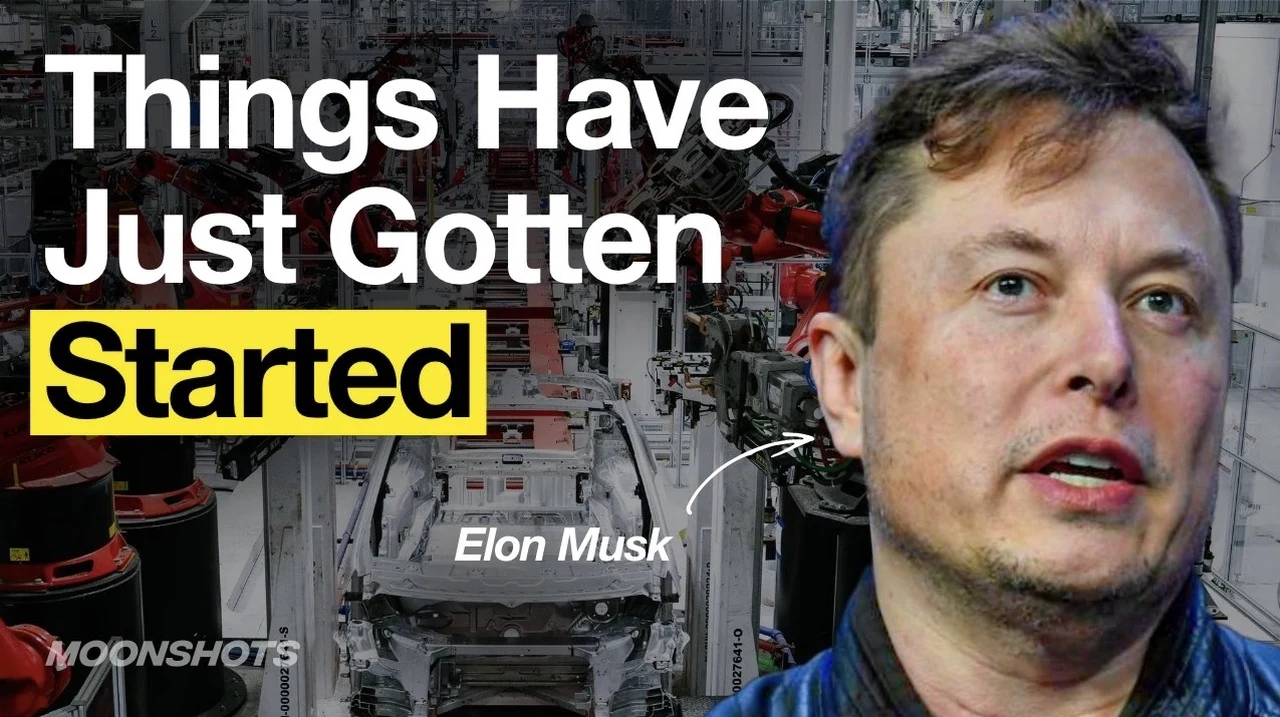
Elon Musk, the entrepreneur behind companies like Tesla and SpaceX, who recently helped Donald Trump regain the American presidency, has continuously pushed the frontiers of technology. His future predictions span artificial intelligence, renewable energy, population dynamics, and space exploration—fields that could reshape societal structures, economies, and human potential.
Imagine a world where AI equals human intelligence, solar energy powers entire cities, and humans explore Mars. Far from science fiction, this is Musk’s vision. Known for transforming ambitious ideas into reality, Musk sees a future where AI, sustainable energy, demographic shifts, and space travel drive global progress. As we approach these transformative shifts, a mix of excitement and uncertainty arises. Could these advancements lead us to a more sustainable, equitable, and innovative world?
Interview with Elon Musk
In this insightful interview, Musk shares his forecasts, exploring how AI might rival human intelligence, why solar energy could become a primary power source, and what the future holds for space travel and autonomous technology. These innovations bring promise but also present complex challenges that demand careful, strategic thinking.
Artificial Intelligence: The Dawn of Human-Level Capabilities
Musk anticipates that artificial intelligence will reach human-level abilities by 2029, a prediction that has sparked both excitement and concern in the tech community. This rapid progress in AI capabilities brings up critical questions about AI safety and ethics. To address these pressing issues, Musk has launched the xAI project, which focuses on developing AI systems that are both beneficial and truth-seeking.
The primary objectives of xAI include:
- Creating AI systems that align with human interests
- Mitigating potential risks associated with advanced AI
- Promoting transparency and accountability in AI development
- Exploring the philosophical implications of artificial general intelligence
As AI continues to evolve, it’s crucial to ensure that its development remains in harmony with human values and ethical considerations. Musk’s initiatives in this field aim to steer AI progress in a direction that maximizes benefits while minimizing potential harm.
Solar Energy: Spearheading the Renewable Revolution
In the realm of energy, Musk predicts that solar power will become the dominant source of electricity worldwide. With ongoing technological advancements and decreasing costs, solar energy is expected to fulfill a significant portion of global energy needs in the coming decades. This transition to renewable energy sources is vital for sustainable growth and combating climate change.
Musk also highlights the potential role of global AI clusters in driving innovation and enhancing energy solutions. These AI-powered systems could optimize energy distribution, improve storage technologies, and accelerate the development of more efficient solar panels.
Elon’s Predictions For the Future
Population Dynamics: Addressing Declining Birth Rates
One of Musk’s more controversial concerns revolves around declining birth rates, which he views as a major threat to global populations. He advocates for policies that promote higher birth rates to sustain population levels and ensure economic stability. Addressing this demographic issue is crucial for maintaining a balanced and thriving society.
Some potential strategies to address declining birth rates include:
- Implementing family-friendly policies in the workplace
- Providing financial incentives for having children
- Improving access to affordable childcare
- Promoting work-life balance to support family formation
Space Exploration: The Red Planet Beckons
Space exploration remains a central focus for Musk, with ambitious plans to launch Starships to Mars in the near future. These missions face significant regulatory and technical hurdles but are viewed as essential for humanity’s long-term survival and expansion. Mars exploration represents a crucial step toward becoming a multi-planetary species, a concept Musk believes is vital for safeguarding human civilization.
The Mars colonization effort involves several key components:
- Developing sustainable life support systems for long-duration space travel
- Creating habitats capable of withstanding the harsh Martian environment
- Establishing a self-sustaining Martian economy
- Addressing the psychological challenges of long-term space habitation
Autonomous Vehicles and Robotics: Reshaping Mobility and Labor
Elon Musk predicts that Tesla’s full self-driving technology will soon transform the automotive industry, ushering in an era of safer and more efficient transportation. By 2040, he anticipates that humanoid robots will be commonplace, influencing various sectors from manufacturing to healthcare.
The integration of autonomous vehicles and advanced robotics is expected to have significant economic impacts, potentially boosting efficiency and productivity across industries. However, this shift also raises important questions about the future of work and the need for societal adaptation to these technological changes.
Economic and Societal Shifts: Envisioning a Post-Capitalist Era
Looking further into the future, Musk envisions a world where technological advancements lead to an abundance of goods and services. This abundance could pave the way for a post-capitalist society, characterized by universal high income and reduced economic inequality.
Such a shift would redefine economic structures, potentially fostering greater equity and sustainability. However, it also presents challenges in terms of:
- Redefining the concept of work and personal fulfillment
- Making sure equitable distribution of resources in an automated world
- Addressing the psychological and social impacts of abundance
- Developing new economic models that can function in a post-scarcity environment
Elon Musk’s predictions outline a future driven by rapid advancements in AI, renewable energy, and space exploration. These technological leaps offer both unprecedented opportunities and significant challenges, with the potential to reshape society into a more sustainable, equitable, and technologically advanced world. As we move towards this envisioned future, it’s crucial to approach these changes with careful consideration, making sure that technological progress aligns with human values and societal well-being.
Credit : Geeky Gadgets





